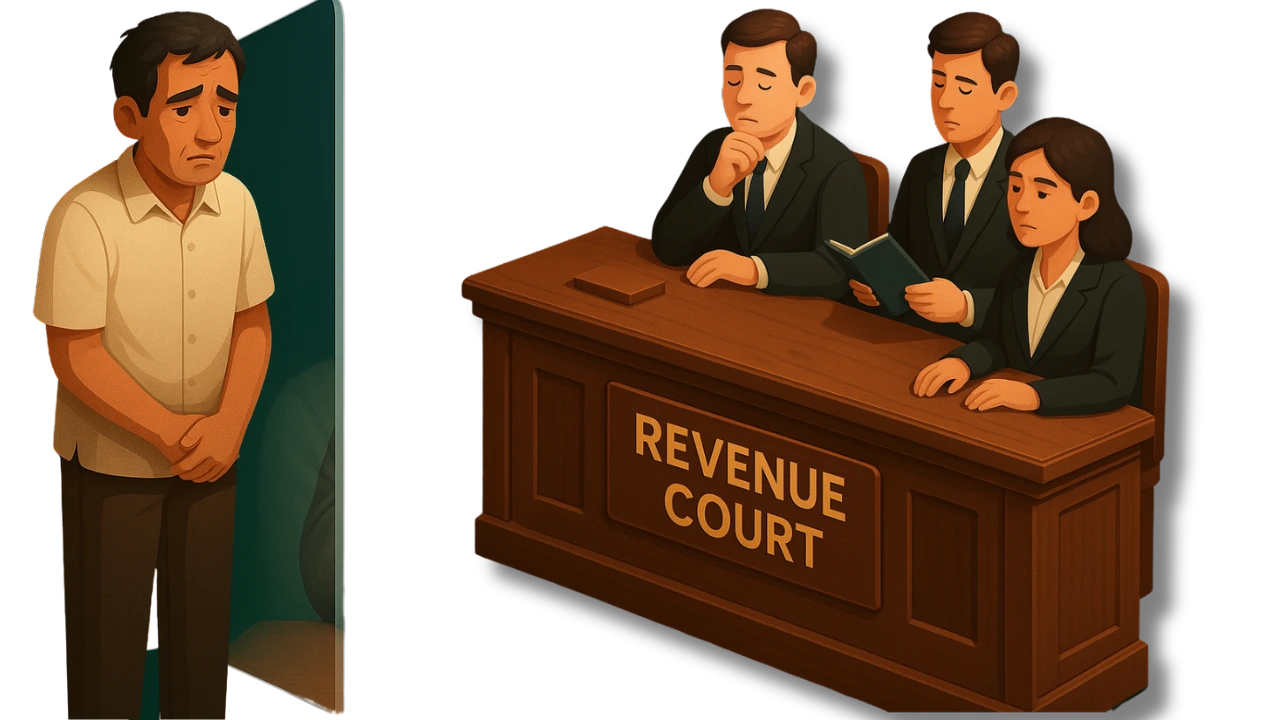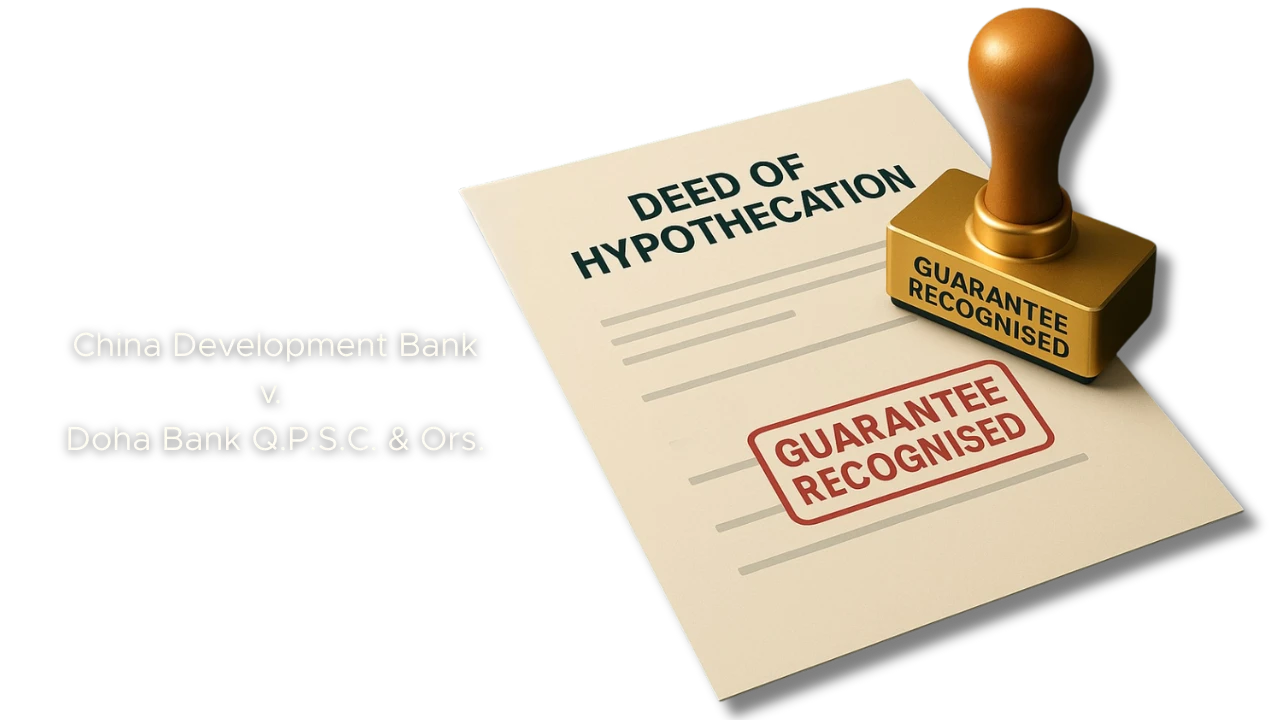In the hallowed halls of justice, the pursuit of truth and fairness rests upon foundational principles, none more crucial than the right to cross-examine. As famously articulated by John Henry Wigmore, “Cross-examination is the greatest legal engine ever invented for the discovery of truth“. This profound statement underscores the indispensable role of cross-examination in legal proceedings, a role deeply embedded within the fabric of India’s judicial system and affirmed by the highest courts.
The Denial of a Fundamental Right in Revenue Courts
The case currently before the Rajasthan High Court stands as a stark illumination of a significant procedural lapse within the Revenue Courts. At its very core lies the denial of the Petitioner’s statutory right to cross-examine key witnesses, a critical omission that led to a judgment against them without a fair and fundamental opportunity to challenge the presented evidence.
Revenue Courts across India play a pivotal role in resolving disputes related to land revenue, agricultural tenancy, and other vital land-related matters. These courts often serve as the primary access point to justice for millions of rural citizens. However, their operations can be hampered by procedural delays and, crucially, a lack of comprehensive legal knowledge among the administrative officers who preside over them, in contrast to judicially trained judges. This specific case exemplifies such a procedural shortcoming: a suit filed by the respondents was decreed without the petitioners being afforded any opportunity to cross-examine the opposing witnesses.
Jurisdiction of Revenue Courts: A Defined Scope
The jurisdiction of revenue courts in India is a specific and vital domain, primarily confined to matters concerning land revenue, agricultural tenancy, and related issues as governed by individual state-specific land laws, such as the U.P. Zamindari Abolition and Land Reforms Act, 1950. These courts are precisely empowered to adjudicate disputes concerning tenancy rights, including the classification of tenants, the eviction of unauthorized occupants, or the determination of possession over agricultural land. However, a clear line is drawn when it comes to the complex realm of determining ownership or title to land, especially when civil rights are at stake. Such matters fall exclusively within the purview of civil courts, as mandated by Section 9 of the Civil Procedure Code, 1908.
This jurisdictional delineation has been consistently upheld by higher judicial authorities. The Hon’ble Supreme Court, in the landmark case of Dhulabhai v. State of Madhya Pradesh, definitively ruled that the jurisdiction of civil courts cannot be ousted unless a statute explicitly or implicitly bars it. Crucially, the Court emphasized that revenue courts inherently lack the authority to adjudicate intricate questions of ownership and title. Similarly, in Bhinka v. Charan Singh, the Supreme Court reiterated that the jurisdiction of revenue courts is strictly limited to the powers conferred upon them by statute, and they are prohibited from exceeding these boundaries. Further reinforcing this principle, the Allahabad High Court in Jagannath v. Board of Revenue affirmed that while revenue courts may determine an individual’s status as a tenant under relevant land laws, they are not competent to decide disputed ownership rights.
In essence, while revenue courts play an indispensable role in the administration of agricultural tenancy and land revenue matters, their mandate does not extend to adjudicating questions of fundamental ownership or title. Such complex disputes, particularly those involving documentary evidence, contested claims, or intricate legal issues that touch upon broader civil rights, must unequivocally be brought before the competent civil courts for resolution. Therefore, in situations where a conflict arises between tenancy and ownership rights, the appropriate recourse necessitates civil litigation.
Cross-Examination: A Constitutional Mandate
The right to a fair trial is not merely a legal nicety; it is a fundamental right guaranteed under Article 21 of the Constitution of India. This constitutional safeguard ensures that “no person shall be deprived of his life or personal liberty except according to procedure established by law”. Cross-examination, far from being a mere formality, is a “fundamental component of the legal process” and a “statutory right” essential for a fair trial. It empowers the adverse party to thoroughly analyze and challenge the evidence presented by a witness, serving as a critical mechanism to separate truth from falsehood.
The Indian Evidence Act, 1872, particularly Section 137, meticulously defines examination-in-chief, cross-examination, and re-examination. Examination-in-chief is conducted by the party calling the witness, cross-examination by the adverse party, and re-examination by the calling party after cross-examination. In this case, the Sub-Divisional Officer (SDO) erred significantly, recording that “re-examination” was granted, but explicitly noted that “no opportunity of cross-examination was granted to the petitioners”. This fundamental misinterpretation and procedural oversight by the SDO effectively deprived the petitioners of their statutory right to test the opposing evidence.
The High Court rightly underscored that cross-examination is “an integral part and parcel of the principles of natural justice”. This principle, as established by the Hon’ble Apex Court in Maneka Gandhi vs. Union of India, dictates that justice must not only be done but must also be seen to be done. The rationale here is that denying a reasonable opportunity of being heard, particularly when such an order carries “adverse civil consequences” like the violation of property or personal rights, constitutes a grave breach of fundamental fairness. Consequently, proceedings and decisions of administrative and quasi-judicial bodies should be characterized by “actual and demonstrable fairness”.
Despite the respondents’ contention that ample opportunity was provided and that the petitioners’ counsel had waived the right to cross-examination, the High Court’s scrutiny of the records revealed otherwise. No prior cross-examination had been conducted, nor were there “several repeated applications” for cross-examination as falsely claimed by the SDO. The sole application for cross-examination filed by the petitioners was rejected on the same day it was submitted, exposing a lack of familiarity with legal provisions and procedures on the part of the SDO. The respondents’ reliance on Ayaaubkhan Noorkhan Pathan vs State Of Maharashtra & Ors to support their claim that sufficient opportunity was given was ultimately not accepted by the High Court, as the facts of the instant case clearly demonstrated a denial of the petitioners’ statutory right to cross-examine, contrary to the principles of a fair trial.
Proactive Measures for Modernizing Revenue Justice
The High Court decisively supported the Revenue Appellate Authority’s (RAA) judgment, which had correctly identified the procedural flaw and remanded the case back to the SDO for fresh adjudication, contingent upon providing the opportunity for cross-examination. The Board of Revenue, which subsequently set aside the RAA’s judgment, failed to adequately appreciate these critical facts.
This case serves as a critical reminder of the imperative for procedural integrity in all judicial and quasi-judicial bodies, especially those that serve as the initial point of contact for a significant portion of the population. In an era defined by technological advancement and institutional accountability, the inefficient functioning of Revenue and Appellate Revenue Courts can no longer be tolerated. The Government must address the following issues with urgency and implement necessary proactive and corrective measures without delay:
- Digitization of Revenue Courts: To enhance accessibility and transparency, Revenue Courts should undergo a complete transformation into fully digital institutions, with all their judgments being promptly uploaded online.
- Creation of a Virtual Justice Clock: To modernize court functioning through digitization, there is a need to establish a Revenue Courts Data Grid or Virtual Justice Clock serving as a transparent indicator of the efficiency and performance of Revenue Courts in ensuring timely case disposal.
- Structured Training for Officers: It is essential to impart structured training to officers performing quasi-judicial functions in Revenue and Appellate Revenue Courts. Such training would prevent procedural irregularities, as observed in this case, and enhance the overall effectiveness and fairness of judicial proceedings.
- Dedicated Administrative Judicial Academy: A specialised Administrative Judicial Academy should be set up at the State level to facilitate continuous professional development for officers posted in Revenue and Appellate Revenue Courts.
- Formulation of Standard Operating Procedures (SOP): This is formulated for Revenue and Appellate Revenue Courts to ensure expeditious case disposal. Uniform procedural guidelines should be framed and adopted across the State.
- Time-Bound Case Disposal and Monitoring: A mechanism is required to ensure time-bound disposal of cases in Revenue and Appellate Revenue Courts, supported by an effective monitoring system at higher levels, including Divisional Headquarters. A quota system should be introduced, mandating the priority disposal of a specified number of cases, particularly old targeted cases, with performance reflected in Annual Confidential Reports (ACRs) of these officers.
- Promotion of Alternate Disputes Resolution (ADR): Like Civil Courts, Revenue and Appellate Revenue Courts should be directed to promote ADR mechanisms, encouraging mediation and conciliation in revenue disputes, especially concerning mutation and partition. This would reduce litigation burden and facilitate amicable settlements.
- Online Portal for Case Management (RCCMS): The online portal should be introduced to effectively track the disposal and quantity of revenue judgments.
- Provision of Legal Resources: Law Journals containing judgments related to Revenue & Procedural Law, along with Legal Handbooks and Pocket guides of procedural laws and key sections of the Rajasthan Tenancy and Revenue Acts, including relevant provisions of the CPC and the Evidence Act, should be provided to field officers.
- Amendment of Rules for Officers Posting: The Government should consider amending relevant rules to introduce a procedure for conducting comprehensive examinations for posting officers in Revenue and Appellate Revenue Courts. This would test their legal acumen in Revenue and Procedural Laws like CPC, the Indian Evidence Act, etc.
Conclusion
A well-trained administration is essential for a justice system that is swift and fair, a critical need in the current era. An Administrative Judicial Academy, providing practical training to Presiding Officers in Revenue and Revenue Appellate Courts, can significantly contribute to shaping competent, ethical, and technologically proficient officers. With strategic reforms, increased resources, and a learner-centric approach, such an academy can serve as a “torch bearer” in judicial education and play a transformative role in the administration of justice delivery. In conclusion, the denial of cross-examination is more than a technical misstep; it is a direct affront to the principles of natural justice and the fundamental right to a fair trial enshrined in Article 21 of the Indian Constitution. For the Indian justice system to truly embody its commitment to truth and fairness, administrative and quasi-judicial bodies must ensure their proceedings are characterized by “actual and demonstrable fairness”. The “greatest legal engine for the discovery of truth” must be allowed to operate unimpeded, ensuring that justice is not only done but is unequivocally seen to be done.
Expositor(s): Adv. Archana Shukla






